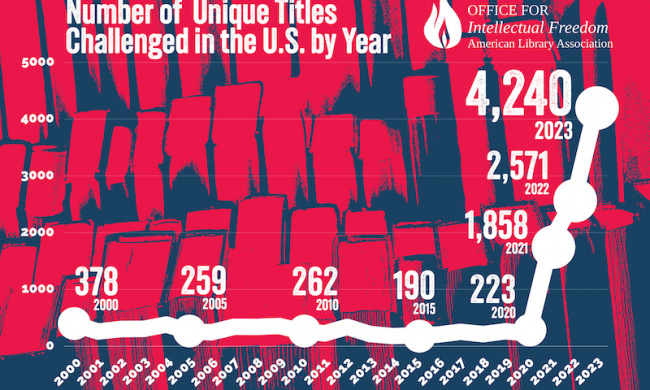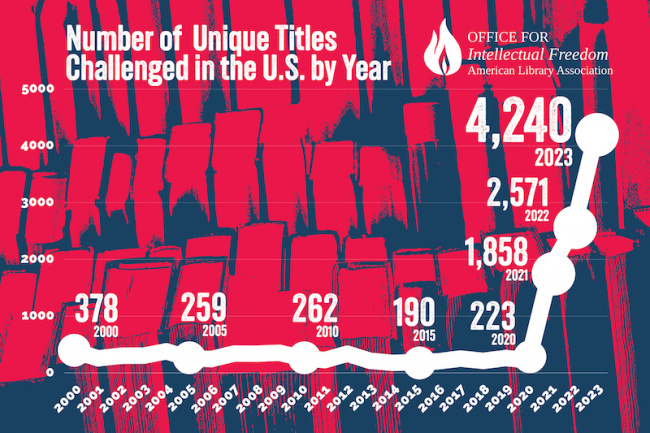The focus of book banning attempts has shifted from school to public libraries, with challenges in public libraries up 92% in 2023 and challenges to books in school libraries up 11%. Much of the increase is driven by groups and individuals who challenge multiple books at once. 47% of the challenged books feature LGBTQ+ or BIPOC characters.
The ALA will release the list of the top 10 most challenged books on April 8, which is Right to Read Day.
A challenge is a formal request to remove a book from a library. Not all challenges are successful; most libraries have a process for reviewing challenges, and about half of the challenged books remain on shelves, according to analysis done by the Washington Post, with stories featuring LGBTQ+ characters the most likely to be removed.
The number of challenged books surged from 223 in 2020 to 1,858 in 2021 (see “Library Book Challenges Up 8X Since 2020”), and the numbers have been increasing since then. Even before that surge, graphic novels have been among the top titles, and Maia Kobabe’s Gender Queer is one of the most challenged books in the country (see “Graphic Novels Were First and Fourth Most Challenged Books in 2022”).
The book-banning attempts don’t stop at libraries. The Arkansas legislature passed a state law that would make it a criminal offense for booksellers or librarians to make “harmful” materials available to minors; that law was blocked by a federal judge who deemed it likely to be found unconstitutional (see “Federal Judge Temporarily Blocks Arkansas Law”). In Virginia, a state legislator tried to have Gender Queer declared obscene, but instead the judge struck down the statute involved as unconstitutional (see “‘Gender Queer’ Case”)
In addition, a number of libraries have left the American Library Association (see “Red-State Libraries Pull Out of American Library Association”).









